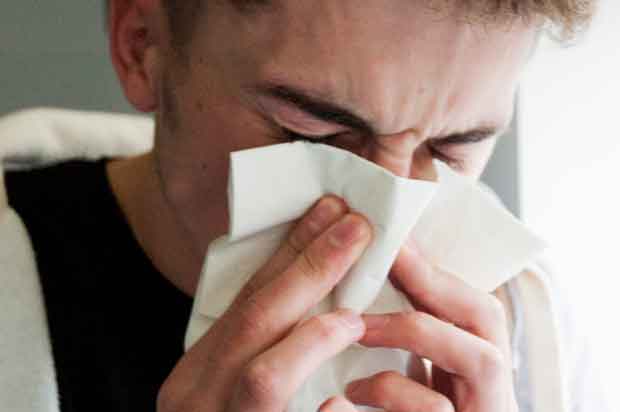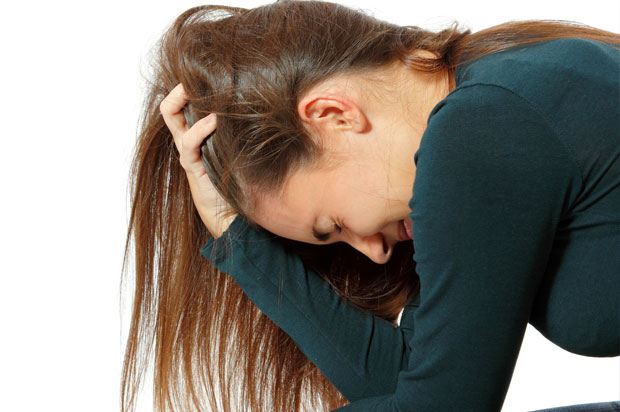Hay fever, itchy skin and other allergies

If you're allergic to tissues, that's a whole different problem.
From insect bites to dairy, pollen and nuts – it’s no fun when your body comes over all defensive. Read on for our guide to allergies and hay fever and itchy skin.
What is an allergy?
People can be allergic to all kinds of different substances, from pet fur, household dust, certain foods and medicines. Hay fever is an allergy to pollen, which means the body reacts badly to its presence, resulting in irritation and inflammation of the nose and eye lining.
Why am I allergic to stuff?
Your body’s immune system is designed to protect you from infection. When a harmful substance (i.e. a virus or bacteria) enters the body, antibodies quickly arrive to deal with it. Symptoms of this can include itching, coughing, wheezing, bloating, hives and skin rashes. But – hey – it’s for your own good, right?
If you have an allergy however, your body is mistaking something harmless for something dangerous. So your immune system is triggered for no reason.
Signs and symptoms of an allergy
Symptoms vary from one person to the next, but a great deal depends upon the type of allergy and individual levels of sensitivity. Generally, the area of the body where the allergen has come into contact is most affected.
For example, the runny nose and itchy eyes that crop up with hay fever is associated with a pollen allergy, while an allergic reaction to an insect bite could cause the surrounding tissue to swell up. Always consult your doctor (GP) for medical advice if the symptoms persist, or if you start to have trouble breathing.
Hay fever and itchy skin
It’s pretty normal to experience mild allergic reactions during hay fever season, and common symptoms include:
- Coughing, sneezing and a runny or blocked nose.
- Red, itchy or watery eyes.
- Itchy throat, mouth, nose and ears.
- Loss of smell.
- Headache.
- Earache.
- Feeling tired.
A lesser known symptom of hay fever involves red, itchy, blotchy patches or hives on your skin. This can happen from breathing in pollen, but it’s more likely to occur when it touches your skin directly.
Itchy skin and general skin irritation is no stranger to people with eczema, and pollen can also make this condition worse.
How to treat itchy skin from hay fever
If you have hay fever symptoms appearing on your skin (or an eczema flare up), a topical cream such as calamine lotion can help calm it down. Many people also take over the counter antihistamines to reduce allergy symptoms, but don’t underestimate how drowsy this type of medication can make you feel, particularly if you’re intending to drink alcohol or take any other drug that might produce sedative effects.
While it might be difficult to avoid the outside world when there’s a high pollen count, showering and changing your clothes when you can could help, along with avoiding grassy areas in the early morning, evening or night, when the pollen count is highest.
What about food allergies?
Our bodies can be allergic to all sorts of foods – and some of these allergies can be particularly dangerous like a nut allergy. All ingredients are required, by law, to be listed on food packaging, regardless of the amount contained in the product. This is designed to make it easier for people with food allergies to determine whether or not the product is safe for them to eat.
If your food allergy is severe you’ll need to be clued up about reading food labels. In these cases, it’s best to stick to the rule ‘if you don’t know what’s in it, don’t eat it.’
What’s the difference between a food allergy and a food intolerance?
Lots of people are ‘intolerant’ of food types, like lactose or gluten. But ‘technically’ this doesn’t make them allergic. If you’re intolerant to a certain food, then you certainly get unpleasant symptoms from eating it – like headaches, or diarrhoea. But because this reaction doesn’t involve the immune system, it’s not considered an allergy.
How do I get tested for an allergy?
In some cases, it’s easy to diagnose yourself. If you start sneezing the moment spring arrives then – yeah – you probably have hay fever. And if you come out in mouth ulcers whenever you eat pineapple, then you’re probably allergic to pineapple.
If your allergy is really bothering you, it’s worth getting it formally diagnosed through your GP. There are two ways of testing for allergies:
Skin prick test – This involves pricking your skin with a tiny, harmless, amount of allergen. If your skin gets red and itchy, it means you’re allergic. This is a very safe test but it’s important to get one through your GP, and not a commercial self-test kit as these aren’t reliable.
Blood test – These are used to work out if you potentially have a serious allergy to something. A small amount of blood is taken, and then they measure the amount of antibodies in the blood in reaction to the allergen.
What if allergies and hay fever affect my exams?
It’s sods law that exam time is also the same time an awful lot of pollen is floating about in the air. Don’t disregard the impact your hay fever could have on your exams. If you’re drowsy from medicine, or your eyes are glued shut from polleny pus, this will affect your ability to revise. Tell your school or university about it so they can make special considerations.
We’ve got more advice for how to cope with exam season here.
Treatment for allergies
There is no medical ‘cure’ for allergies, but you can often avoid the substance responsible, and the symptoms can still be treated. Antihistamines may help reduce some of the effects of an allergic reaction, but always talk it over with your GP or pharmacist first.
If you have hay fever, it’s harder to avoid getting in contact with pollen. But these treatments can help alleviate symptoms:
Nasal sprays and drops – reduce inflammation in the nose or stop an allergic reaction before it occurs. Similar products exist for the eyes. Can also be brought over the counter, though some do require a prescription;
Injection – only used in extreme cases in hospitals. It works by desensitising patients to allergic substances.
Get more support dealing with body problems here.
Next Steps
- Chat about this subject on our Discussion Boards.
By The Mix Staff
Updated on 29-Sep-2015
No featured article














